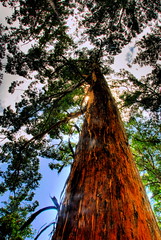I see in the press yesterday that Safaricom have won an innovation award for their MPesa service from a UN agency.
“The Habitat Business Award for sustainable urbanization, which is organized by the United Nations Human Settlements Programme (UN-HABITAT), aims to recognize and publicize outstanding achievements contributing to sustainable urbanization through responsible corporate practices.”
In reading this article, something pushed my buttons. If you happen to be a reader of this blog and have read Nathan and the Mobile Operators or We Need The Eggs or my rant about SMS charges, you may have already decided that I have African mobile operator “issues”. Perhaps I do. Certainly I have an issue with the apparent myopia, especially from development agencies, regarding any possible downside to the rapid growth of mobile infrastructure in Africa. Everyone is happy to celebrate their achievements without paying much attention to the effective monopolies/oligopolies that they have become. I am at a loss to explain why, with few exceptions, there is not more public comment on what mobile operators are doing to the general communications (and by extension, innovation) ecosystem in African countries.
Let me preface my rant by once again acknowledging the miracle that mobile phones are. There can’t be many people who still doubt the direct value that mobile phones provide to people. I’ll go further and say that the best is yet to come. There seems little doubt that there is a coming revolution in mobile-enabled banking and transactions. Yet all is not sweetness and light and that is because the wealth that is being generated by mobile operators in Africa is not being distributed evenly. Here are a couple of examples:
- In South Africa, Sameer Dave, Chief Technology Officer for MTN, recently acknowledged that MTN were subsidising their 3G data traffic with revenue from their voice and SMS business. This means, when it comes to communication, that the poor in South Africa are effectively subsidising the wealthy.
- Or consider the microeconomics of the edge cases of mobile access. Let’s pick a remote village served by a single cell tower. We know a couple of things about mobile access in Africa. One, the majority of calls are local. Two, people are spending substantial amounts of their disposable income on access. So, in a remote village if 50% of the phone calls are local and people are spending 50% of their disposable income on mobile access, that means that 25% of their disposable income is being siphoned out of that village.
Can’t we acknowledge the achievements of mobile phones on the continent while at the same time look at the larger ecosystem? Ecosystem…. the word set me thinking. Then suddenly it came to me… the Blue Gum tree. The Blue Gum tree is an excellent metaphor for understanding mobile operators on the continent. If you have spent time in Africa, you will have likely have noticed the Blue Gum trees especially in Southern and Eastern Africa, and the Horn of Africa. The Blue Gum tree (Eucalyptus) is not native to Africa but was imported to the continent in the late 19th century because it is fast growing and suitable for both timber and fuel.
However, in recent years the Blue Gum tree has gone from panacea to parasite. Not only does the Blue Gum consume 80 to 200 litres of water per day but it also attempts to kill off surrounding plant life by releasing a chemical into the soil. From South Africa to Kenya the effect of the Blue Gum tree on water scarcity is being recognised. So while no one doubts the utility of Blue Gum trees, the impact on the water table as well as the killing off of indigenous competitors needs to be taken into account.
I don’t want to get rid of Blue Gum trees or mobile operators but I would like them to stop retarding the competition and for there to be a more balanced telecoms ecosystem. The telecoms sector in Africa needs a thriving understorey that can develop new technologies and innovations that can ultimately grow up to challenge the “old growth”. Without it we all remain thirsty for innovation on the continent.
A final note. When giving out Mpesa awards, just once I would like to see Simon Batchelor of Gamos Consulting mentioned. Simon has been a tireless champion of mobile money since I have known him and I know how hard he lobbied Safaricom to take up the idea.
—
Blue Gum photo courtesy Slack12 – Creative Commons NC-ND
